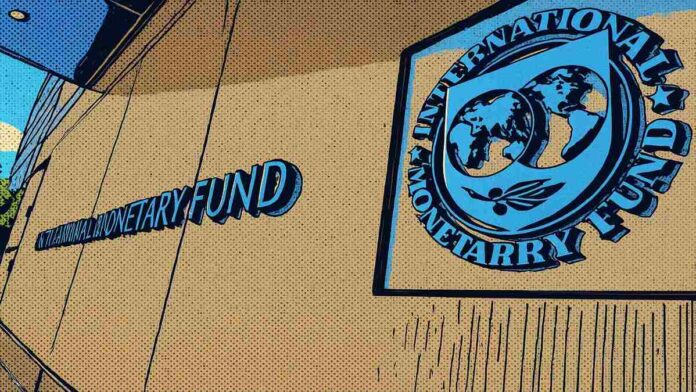The International Monetary Fund (IMF) expressed optimism about the economic resilience of the Middle East, North Africa (MENA), Pakistan, and the Caucasus and Central Asia (CCA) regions in its latest Regional Economic Outlook, presented during a press briefing on October 20, 2025. Despite ongoing trade tensions, geopolitical conflicts, and global uncertainties, the regions have demonstrated stronger-than-expected growth, though downside risks loom large.
Jihad Azour, Director of the IMF’s Middle East and Central Asia Department, opened the briefing by noting the global context: steady output growth and easing inflation worldwide, bolstered by temporary factors like front-loading ahead of U.S. tariff hikes and AI investments. However, as these fade, global demand could soften, impacting the regions through trade, finance, and commodities.
In MENA and Pakistan, economic activity has outperformed expectations, with growth projected at 3.2% for 2025—up from 2.1% in 2024 and higher than April forecasts—rising to 3.7% in 2026. Oil exporters benefit from higher output amid unwinding OPEC+ cuts, while importers and Pakistan gain from low energy prices, robust remittances, and thriving tourism. Inflation remains moderate, supported by lower food and energy costs and tight monetary policies.
For the CCA, growth is forecast at 5.6% in 2025, driven by strong consumption, credit expansion, and hydrocarbon exports, before moderating to around 4% in the medium term as fiscal consolidations kick in and hydrocarbon production stabilizes.
Azour highlighted positive developments: smooth exchange rate adjustments, narrowing sovereign spreads, and successful bond market returns. However, inflation varies—easing in most MENA economies and Pakistan but accelerating in many CCA countries due to demand pressures.
The outlook is upbeat, with growth strengthening in MENA and Pakistan via reforms and domestic demand, and moderating sustainably in CCA as inflation declines. Yet, risks include global slowdowns, tighter financial conditions, persistent inflation, fiscal sustainability concerns, geopolitical tensions, and climate shocks. Upside potential lies in faster peace progress and reforms for inclusive growth.
Policy priorities focus on rebuilding fiscal and external buffers, especially in reserve-limited countries. Azour urged enhancing fiscal frameworks for sustainability, bolstering monetary policy credibility, and accelerating structural reforms to diversify economies, empower the private sector, and create jobs. In conflict zones, priorities include stabilization, institution-building, and external support.
The IMF reaffirmed its commitment, having approved nearly $56 billion in financing since early 2020 and delivered over 385 capacity-development projects worth $36.8 million in FY2024-2025. Upcoming REO launches are scheduled for Dubai on October 21 and Almaty on October 30.
Fielding questions, Azour addressed GCC strategies amid protectionism: limited direct tariff impacts due to low U.S. trade volumes and oil exemptions, but vigilance needed for indirect effects. He praised GCC diversification into non-oil sectors and opportunities in AI and new trade routes with Africa, Central Asia, and Europe.
On GCC debt, he noted improved market access and stable conditions, with borrowing as part of asset-liability management. Risks tie to global trends and oil prices, mitigated by buffers and institutional strengthening.
For Egypt, Azour highlighted progress in macroeconomic stability, with inflation dropping to 11.8% next year, growth at 4.3% in FY2024/25 and 4.5% in 2025/26, and declining debt. The IMF program emphasizes private sector empowerment via better business environments and state role reviews. Discussions for the Fifth and Sixth Reviews are ongoing, focusing on privatization and social protections; no extension needed. A Gaza peace deal could positively impact Egypt by boosting trade and tourism, aiding adaptation to shocks.
On Gaza reconstruction, Azour welcomed the ceasefire, stressing initial damage assessments by UN and World Bank, with IMF contributing via policy advice and coordination. Estimates await assessments; IMF participation in conferences aligns with its mandate.
For oil importers, tourism and remittances drive demand and growth, with tight policies controlling inflation and debt.
Lebanon discussions continue based on the 2022 staff-level agreement, focusing on debt sustainability, banking restructuring, fiscal reforms, and anti-corruption to restore trust and shift from a cash economy. Key impediments include loss distribution and medium-term fiscal anchors.
In CCA, global challenges like energy underinvestment pose risks, but resilience stems from domestic demand and exports. Azour advised vigilance on debt from infrastructure projects, like in Kyrgyzstan, ensuring sustainability through reforms and improved business environments.
On Tunisia, Azour noted past support but stalled programs and Article IV consultations at Tunisia’s request; IMF remains ready for assistance.
For Jordan, despite shocks, stability persists with slight growth improvements and reforms under recent reviews.
Morocco’s economy has rebounded to 4.5% growth in 2025 via agriculture and exports, with calls to diversify jobs and strengthen social nets.
Azour concluded: “The region has once again demonstrated its ability to weather shocks. The task now is to turn short-term stability into long-term strength.”
For the full transcript of the press briefing, visit: https://www.imf.org/en/News/Articles/2025/10/20/tr-10-17-25-mcd-press-briefing-transcript
Disclaimer
The content on MarketsFN.com is provided for educational and informational purposes only. It does not constitute financial advice, investment recommendations, or trading guidance. All investments involve risks, and past performance does not guarantee future results. You are solely responsible for your investment decisions and should conduct independent research and consult a qualified financial advisor before acting. MarketsFN.com and its authors are not liable for any losses or damages arising from your use of this information.





